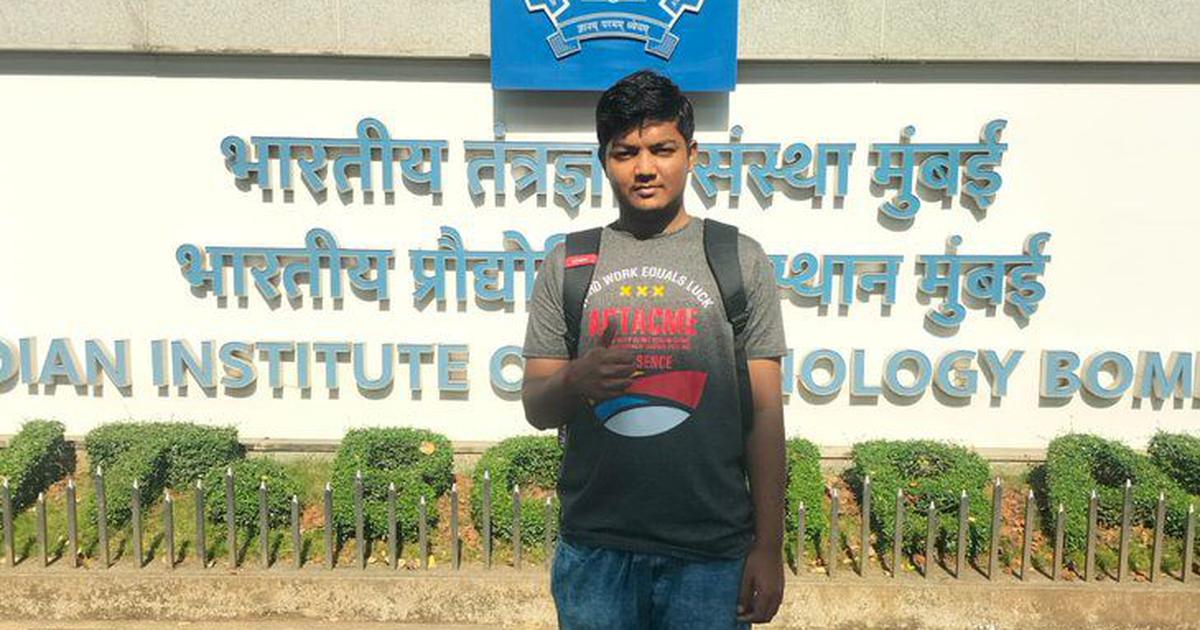On May 11, three months after the death of Darshan Solanki, a first-year B.Tech (Chemical) student at IIT Bombay who had died by suicide on February 12, 2023 due to facing alleged “severe caste discrimination” at the Institute, his father, Ramesh Bhai Solanki addressed a press conference at the Mumbai Press Club. At said conference was also attended by his daughter and Darshan’s sister Janvi Solanki and Former Member of Parliament Dr Bhalchandra Mungekar.
During the conference, Darshan’s father narrated the difficulties they have had to face since the death of his son, to get the case registered, to get the investigation started, and then to have the Special Investigation Team (SIT) formed. He also spoke about how, even after the investigation started, the caste discrimination angle was not given much attend, and was rather left on the side lines while the focus became the sole student who was being blamed in this case. Ramesh Solanki had termed it to be “highly suspicious” that the SIT in this case had ignored all the testimonies that point to the fact that “Darshan was facing caste discrimination” from his roommate, classmates and other people in the institute and was deeply affected by it.
Providing the chronology, during the conference, Ramesh Solanki said that upon Solanki’s death, the Powai police registered an Accidental Death Report (ADR) instead of an FIR inspite of “evidence of caste discrimination” and started investigation. However, after mounting pressure and demands of the constitution of a Special Investigation Team to investigate the matter, the Maharashtra Government formed a three-member Special Investigation Team (SIT) consisting of Lakhmi Gautam, Joint CP (Crime), Mumbai; Upadhyaya, DCP; Bhosale, ACP, to investigate the case.
Janvi Solanki then provided that in the second week of April, she stumbled upon Darshan’s social media accounts while trying to log into social media and came across Darshan’s chat with an account of “Sam Rajput” on Instagram. As was provided in the press conference, it was through social media only that Janvi got to know that Darshan’s peers had been asking about his rank, his category for admission, and Darshan’s apprehension about another person ‘also’ not liking him.
“It is telling of the fact that in Darshan’s experience in IIT-Bombay, people stopped liking him after they learned that he was a reserved category student. It is yet another evidence of caste discrimination he faced in a line of so many that have already been revealed, showing that he was isolated, taunted and ostracized due to his caste,” Dr Mungekar said, as provided by the Mid-day.
Ramesh Solanki expressed his anguish by saying that even after new evidence was provided, in addition to the many submitted testimonies regarding the caste discrimination that Darshan faced in IIT-Bombay, the focus of the investigation was never the caste discrimination that Darshan faced. Ramesh Solanki further provided that Darshan even wanted to change his room because of the harassment he faced from his roommate. His peers mocked him for his questions about the know-how of computer, electronic gadgets and other subject matters, he said.
“On knowing Darshan’s caste, they ostracized him, reduced their interaction with him, and humiliated him for belonging to the SC category. Darshan had confided to his sister Janvi that when his peers learned that he is from the SC community, they would call him out and say… ‘dalit aaya..dalit aaya’ (look, the Dalit is here) when he would try to join them during group studies or meal hours. His classmate from the SC category has mentioned to the IIT-Bombay internal committee that Darshan was sensitive about his caste and often thought about what others would think about a reserved category student studying in an institute like IIT Bombay,” the family said in a press release after addressing the press conference.
The full press release can be viewed here:
Related:
File FIR against Head Counsellor, Ms Hima Anaredy under Atrocities Act: NCST to IIT Mumbai
IIT Mumbai report on Darshan Solanki death, crucial evidence overlooked
Lessons Unlearned: Nine years after the Thorat Committee report
The Death of Merit: Dalit Suicides in institutes of higher learning
Systemic Prejudice, Absence of Grievance Redressal reasons for Dalit Suicides: Teacher Testimonies
A letter that should shake our world: Dalit scholar suicide triggers outrage
Rohith Vemula’s ‘institutional murder’: Five years on, family and friends still wait for justice
Why have India’s elite institutions sounded the death knell for Dalit Adivasi-Muslim scholars?
IITs unable to create safe spaces for students
MP: Dalit boy dies by suicide, blames teacher’s casteist remarks
